GLOE – THE KURLANDER PROGRAM FOR GLBTQ OUTREACH & ENGAGEMENT AT THE EDLAVITCH DCJCC PRESENTS
16TH ANNUAL NATIONAL RAINBOW

GLOE – THE KURLANDER PROGRAM FOR GLBTQ OUTREACH & ENGAGEMENT AT THE EDLAVITCH DCJCC PRESENTS
16TH ANNUAL NATIONAL RAINBOW
Building Resilient and Generous Community Across Differences
APRIL 14, 2024
Co-Sponsored by the LGBTQ Congregation Bet Mishpachah, Embassy of Israel to the United States, Washington Hebrew Congregation, Adas Israel Congregation, Sixth & I, Den Collective, Nice Jewish Boys, Nice Jewish Girls, GatherDC, Capital Qvellers, Young Leadership of the Jewish Federation of Greater Washington, Keshet, and A Wider Bridge
LED BY RABBI ATARA COHEN, Director of Jewish Life and Learning at the EDCJCC, AND RABBI JAKE SINGER-BEILIN of Bet Mishpachah
FEATURING GUEST SPEAKER
GABRIELA OROZOCO, 2019 DC YOUTH POET LAUREATE
This Haggadah was prepared for this National Rainbow Seder by members of Washington, DC’s LGBTQ Jewish community under the leadership of GLOE— the Kurlander Program for GLBTQ Outreach & Engagement.
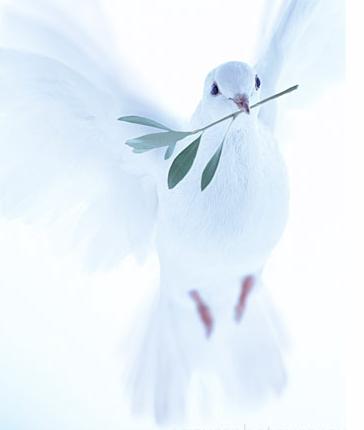
generation, we must see ourselves as if we personally were liberated from Egypt. tell an ancient story of a people's liberation from slavery. It is the story of It is a story of courage and resilience in the face of persecution. will reflect not only on the story of liberation from Mitzrayim, but also of oppressive bonds of intolerance and fear. The root of the Hebrew word meaning “restriction,” “cramped,” or “narrow place.” Tonight we will reflect our own modern world and our continuing struggle to free ourselves. place, our ancestors miraculously made their way into the wide-open space with possibility for renewal and growth. They discovered that, despite before, they had the ability to live anew, to form holy relationships with one Holy One. The ancient story of the liberation of the Hebrews from slavery struggle for freedom and dignity. We are here because the struggle for stops. We are here to remember all people who are still struggling for gather tonight, as have generations before us, to retell this timeless tale.
We gather tonight to tell an ancient story of a people’s liberation from slavery. It is the story of the origin of a people. It is a story of courage and resilience in the face of persecution. However, tonight we will Mitzrayim, but also of broader liberation from oppressive bonds of intolerance and fear. The root of the Hebrew word Mitzrayim is tzar, meaning “restriction,” “cramped,” or “narrow place.” Tonight we will reflect upon narrowness in our own modern world and our
From that narrow place, our ancestors miraculously made their way into the wide-open space of the wilderness, ripe with possibility for renewal and growth. They discovered that, despite what had come before, they had the ability to live anew, to form holy relationships with one another, and with the Holy One. The ancient story of the liberation of the Hebrews from slavery in Egypt is an epic struggle for freedom and dignity. We are here because the struggle for human freedom never stops. We are here to remember all people who are still struggling for their freedom. We gather tonight, as have generations
This Haggadah mixes traditional and progressive elements to create a uniquely queer experience, not only for lesbian, gay, bisexual, transgender, and queer (LGBTQ) Jews celebrating Passover, but also for the broader LGBTQIA+ community. It is intended to be a basis for discussion, inspiration, and a starting point for change. Please go forward with an open heart and mind. Shalom.
sing: ”HINAY MA TOV - בוט המ הנה ” םג םיחא תבש םיענ המו בוט המ הנה Hee-nay ma tov oo-ma na-yeem She-vet a-cheem gam ya-chad.
How good it is to sit together with companions.
everyone present can fully participate in this Seder, tonight we encourage each whole selves to the virtual table—before each other, before our history, families, and before God. Many of us here were taught we couldn’t do this, embrace our mutlifaceted identities, that we were outsiders. Outsider as Jews LGBTQ people; that there was a part of who we are that was unacceptable.
tonight, together in unity, in community, to tell this powerful Passover story proud voices. We are proud of who we are, proud of each piece of our the journey that brought us here. And so, as a way of focusing our community intent, we ask that you reflect and share in the chat in what way Queer, in what way you are proud of your identity, in what way you shine Rainbow.
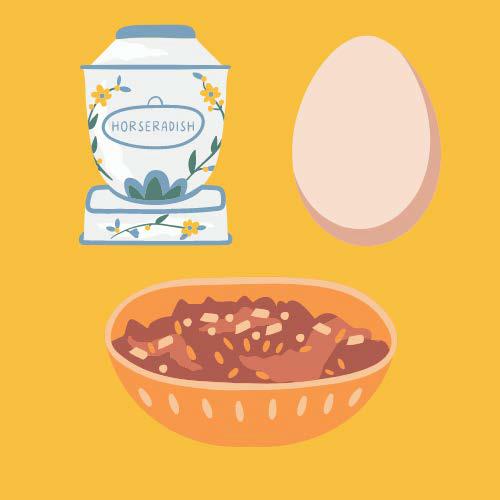
1. Kadesh
2.
3. Karpas
4. Yachatz
5. Maggid דיגמ
6.
7.
8.
9. Maror
10. Koreich
11.
12. Tzafun ןופצ
13. Bareich ךרב
14. Hallel ללה
15. Nirtzah הצרנ
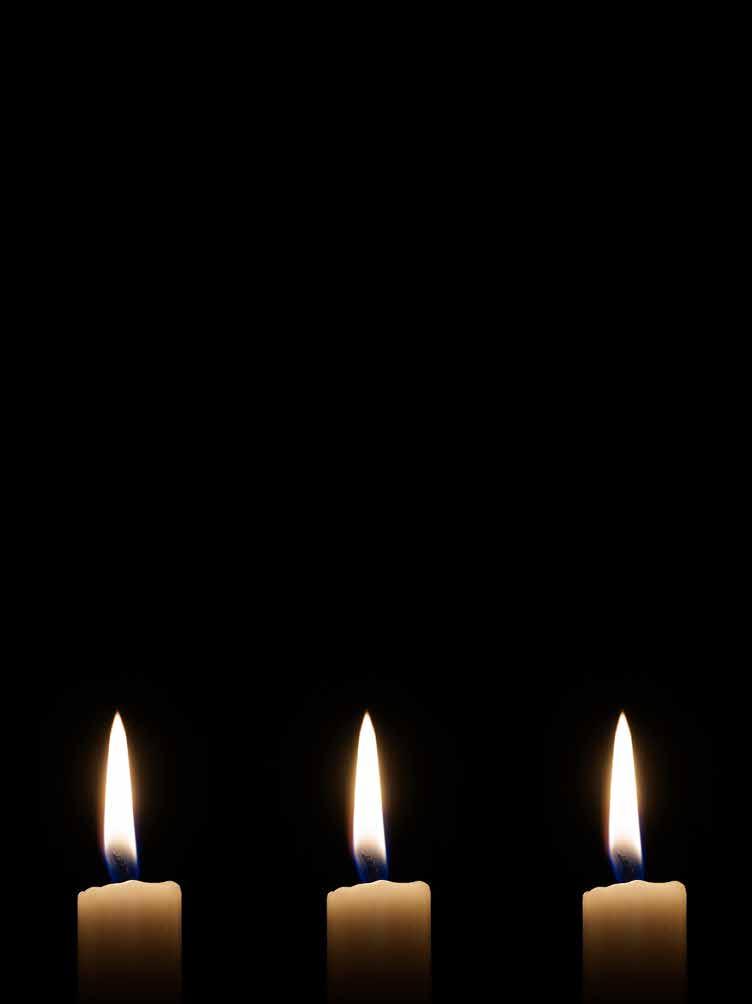
As we bathe in the light of these candles, we remember all the candles we’ve lit as Jews and as LGBTQ people. Shabbat candles. Yahrtzeit candles. Candles at AIDS vigils. And at Take Back the Night Marches. As we share in the light of these candles, we rededicate the flame each of us carries within, that small reflection of the Creator’s light that is ours to use as a beacon in our work of tikkun olam. We rededicate this small spark that we can use as a match to give light to the hopes and dreams of all people ... May God give you the blessings of the light of our ancestors, and may the Holy One help you find the courage to bring all the colors of your own light out into the world. [Stonewall Seder]

Baruch Atah Adonai Eloheinu melech ha-olam, asher kidshanu b’mitzvotav, v’tzivanu l’hadlik ner shel (Shabbat v’) yom tov.
Praised are You, Hashem, our God, whose Presence fills the universe, who has sanctified our lives through Your commandments and commanded us to kindle the lights of the festival.

Baruch atah Adonai, Eloheinu melech ha-olam, sheh’hech’iyanu v’kiy’manu, v’hig’iyanu la-z’man ha-zeh.
Praised are You, Hashem, our God, whose Presence fills the universe, who has given us life and strength and enabled us to reach this moment of joy.
At every Jewish simcha, we bless and share a glass of wine. The sweetness in our cup allows our joy to overflow. Tonight, we do not bless one glass, but four. While much of our evening is dedicated to the themes of slavery, oppression, and persecution, both past and present, tonight we use our glasses of wine to celebrate. Each cup will give us an opportunity to share what we love most about our LGBTQ identity and community.

We enter this space in a difficult time. Consider: what stories and conversations are you seeking from this community to help you face this moment?
Pour the first glass of wine.
Baruch atah Adonai, Eloheinu Melech ha’olam boreh p’ri ha-gafen.
Praised are You, Hashem, our God, whose Presence fills the universe, who creates the fruit of the vine.
Drink the wine.
We raise up our hands to each other to cleanse ourselves of our preconceptions and the negative baggage we carry. We wash away all of the ridicule, the shame, and selfhatred. Through this we are able to approach this space with an open heart, prepared to give of ourselves, to listen, and to share.
No ritual blessing is said on this washing.
We dip the vegetable in salt water. Let us dip the greenery, symbolizing the new growth of the earth. In this way the greenery symbolizes new possibilities and beginnings. Let us now change these tears of sorrow into tears of joy. Tonight the salt water also represent the tears that have been shed by those who have come before us—tears that our relationships had to stay hidden, tears that our families were not recognized, tears of pain and sorrow.

Baruch atah Adonai Eloheinu Melech ha’olam borei pri ha-adamah.
Praised are You, Hashem, our God, whose Presence fills the universe, who creates the fruit of the earth.
Take karpas, dip it in salt water, say the blessing, then eat it.
When love wins at long last,
תבהאו ךערל ךומכ ,
This prayer was written in 2016 as a response to anti-Semitic protests waged against LGBTQ Jews at the Creating Change Conference. Unfortunately, these words ring even louder today, as we hear about law after law demanding the silence and oppression of the LGBTQ community throughout our country. We pray for a day when ‘gay’ can be shouted from every American rooftop and when the ancient commandment of loving your neighbor as yourself can be realized and celebrated.
‘Love your neighbor as yourself’ Will be as natural as breathing.
תבהאו ךערל ךומכ !
This prayer was written in 2016 as a response to anti-Semitic protests waged against LGBTQ Jews at the Creating Change Conference. Unfortunately, these words ring even louder today, as we hear about law after law demanding the silence and oppression of the LGBTQ community throughout our country. We pray for a day when ‘gay’ can be shouted from every American rooftop and when the ancient commandment of loving your neighbor as yourself can be realized and celebrated.
This prayer was written in 2016 as a response to anti-Semitic protests waged against LGBTQ Jews at the Creating Change Conference. Unfortunately, these words ring even louder today, as we hear about law after law demanding the silence and oppression of the LGBTQ community throughout our country. We pray for a day when ‘gay’ can be shouted from every American rooftop and when the ancient commandment of loving your neighbor as yourself can be realized and celebrated.
Love Wins: A Pride Prayer, Jewish
Alden Solovy
Fear will vanish like smoke,
One day, the words ‘coming out’ will sound strange, Oppression based on gender or orientation will be a memory,
History to honor and remember,
One day, love will win every heart, Love will win every soul, Fear will vanish like smoke, And tenderness for all will fill our hearts.
And tenderness for all will fill our hearts.
תבהאו ךערל ךומכ !
Love wins. In the end, Love wins…
Love wins. In the end,
Love wins. In the end, Love wins…
One day, the words ‘coming out’ will sound strange, Oppression based on gender or orientation will be a memory,
Love wins…
All genders,
All genders,
The pain of hiding, repressing, denying,
History to honor and remember,
One day, the words ‘coming out’ will sound strange, Oppression based on gender or orientation will be a memory, History to honor and remember,
All genders, All orientations, All true expressions of heart.
All orientations,
The pain of hiding, repressing, denying,
The pain of hiding, repressing, denying,
Honoring the triumphs of those who fought to be free,
תבהאו ךערל ךומכ !
All true expressions of heart.
All orientations, All true expressions of heart.
Honoring the triumphs of those who fought to be free,
Honoring the triumphs of those who fought to be free,
תבהאו ךערל ךומכ !
Remembering the violence and vitriol that cost lives.
Remembering the violence and vitriol that cost lives.
Remembering the violence and vitriol that cost lives.
Let this come speedily,
When love wins,
When love wins,
When love wins,
When love wins at long last,
When love wins at long last,
תבהאו ךערל ךומכ ,
Let this come speedily, In our day,
In our day,
A tribute to the many
Let this come speedily, In our day,
תבהאו ךערל ךומכ , ‘Love your neighbor as yourself’
When love wins at long last, ‘Love your neighbor as yourself’
‘Love your neighbor as yourself’
Will be as natural as breathing.
Will be as natural as breathing.
Will be as natural as breathing.
תבהאו ךערל ךומכ !
תבהאו ךערל ךומכ !
One day, love will win every heart, Love will win every soul,
One day, love will win every heart, Love will win every soul, Fear will vanish like smoke, And tenderness for all will fill our hearts.
One day, love will win every heart, Love will win every soul, Fear will vanish like smoke, And tenderness for all will fill our hearts.
תבהאו ךערל ךומכ !
תבהאו ךערל ךומכ !
A tribute to the many
And the diverse Gifts from heaven.
A tribute to the many And the diverse Gifts from heaven.
And the diverse Gifts from heaven.
A tribute to love deep and true, Each of us for one another.
A tribute to love deep and true, Each of us for one another.
A tribute to love deep and true, Each of us for one another.
תבהאו ךערל ךומכ !
תבהאו ךערל ךומכ !
© 2016 Alden Solovy and tobendlight.com.
All rights reserved.
© 2016 Alden Solovy and tobendlight.com. All rights reserved.
© 2016 Alden Solovy and tobendlight.com. All rights reserved.
We are free, but we remember when we were slaves. We are whole, but we bring to mind those who are broken. The middle matzah is broken, but it is the larger part which is hidden. The future will be greater than the past, and tomorrow’s Passover nobler than yesterday’s exodus. The prospects for the dreamed future are overwhelming to the point of making us mute. So it is in silence, without blessing, that we break and hide the matzah and long for its recovery and our redemption.
For us, as members of the LGBTQ and allied community, this matzah symbolizes our break with oppressive laws, traditions, and internal strife. We will now hide the Afikomen and ask the youngest among us to find it later. For our youth show us the new roads, the ways forward. They honor our struggle by continuing to carry the torch, never forgetting the fights we have fought in their names.
Middle matzah is broken by leader. One part is returned between the matzot. The other is used as the Afikomen.
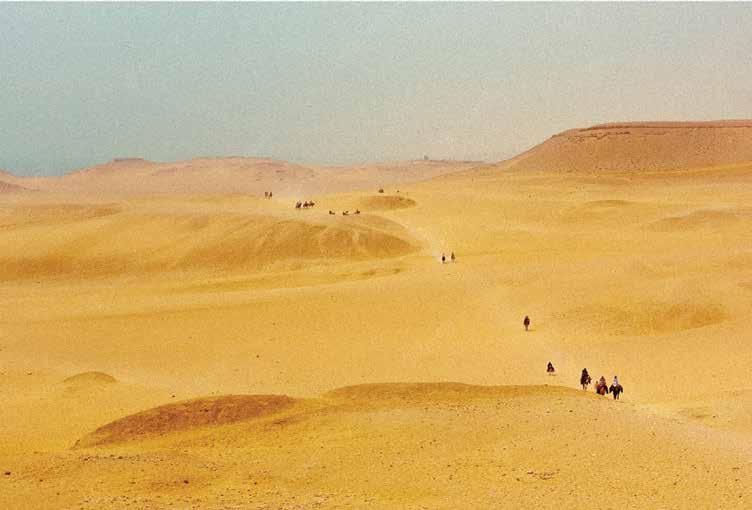
All: This is the bread of affliction our ancestors ate in the land of Egypt. Let all who are hungry come and eat. Let all who are in need come and share our Passover. This year we are here. Next year in the Land of Israel. This year we are slaves. Next year, may we all be free.
We, too, sound this call. The bonds of narrowness are all too familiar in our world. We eat this bread of affliction in order to remember the hardships we still must overcome.
This is the essence of the Seder: a time to retell our story; a time to ask questions, both of the group and of ourselves.
As we tell our stories, we will recite some items in unison and others individually around the table. We will discuss some matters as a community and others in small groups.
What has changed, this night, from all the other nights?
What has changed, this night, from all the other nights?
What has changed, this night, from all the other nights?
Mah nishtanah, ha-laylah ha-zeh, mi-kol ha-leylot?
What has changed, this night, from all the other nights?
What has changed, this night, from all the other nights?
That in all other nights we eat both chametz and matzah, on this night, we eat only matzah?
Mah nishtanah, ha-laylah ha-zeh, mi-kol ha-leylot?
Mah nishtanah, ha-laylah ha-zeh, mi-kol ha-leylot?
Mah nishtanah, ha-laylah ha-zeh, mi-kol ha-leylot?
That in all other nights we eat both chametz and matzah, on this night, we eat only matzah?
What has changed, this night, from all the other nights?
That in all other nights we eat both chametz and matzah, on this night, we eat only matzah?
That in all other nights we eat both chametz and matzah, on this night, we eat only matzah?
That in all other nights we eat both chametz and matzah, on this night, we eat only matzah?
That in all other nights we eat many vegetables, on this night, maror?
Mah nishtanah, ha-laylah ha-zeh, mi-kol ha-leylot?
She-b’khol ha-leylot ‘anu ‘okhlin chameytz u-matzah, ha-laylah ha-zeh, kulo matzah?
That in all other nights we eat both chametz and matzah, on this night, we eat only matzah?
That in all other nights we eat many vegetables, on this night, maror?
That in all other nights we eat many vegetables, on this night, maror?
That in all other nights we eat many vegetables, on this night, maror?
That in all other nights we eat many vegetables, on this night, maror?
That in all other nights we eat many vegetables, on this night, maror?
That in all other nights we do not dip vegetables even once, on this night, we dip twice?
That in all other nights we do not dip vegetables even once, on this night, we dip twice?
That in all other nights we do not dip vegetables even once, on this night, we dip twice?
That in all other nights we do not dip vegetables even once, on this night, we dip twice?
That in all other nights we do not dip vegetables even once, on this night, we dip twice?
That in all other nights we do not dip vegetables even once, on this night, we dip twice?
She-b'khol ha-leylot 'anu 'okhlin chameytz u-matzah, ha-laylah ha-zeh, kulo matzah?
Mah nishtanah, ha-laylah ha-zeh, mi-kol ha-leylot?
She-b'khol ha-leylot 'anu 'okhlin chameytz u-matzah, ha-laylah ha-zeh, kulo matzah?
She-b'khol ha-leylot 'anu 'okhlin chameytz u-matzah, ha-laylah ha-zeh, kulo matzah?
She-b'khol ha-leylot 'anu 'okhlin chameytz u-matzah, ha-laylah ha-zeh, kulo matzah?
She-b'khol ha-leylot 'anu 'okhlin chameytz u-matzah, ha-laylah ha-zeh, kulo matzah?
She-b'khol ha-leylot 'anu 'okhlin sh'ar y'raqot, ha-laylah ha-zeh, maror?
She-b'khol ha-leylot 'anu 'okhlin sh'ar y'raqot, ha-laylah ha-zeh, maror?
She-b’khol ha-leylot ‘anu ‘okhlin sh’ar y’raqot, ha-laylah ha-zeh, maror?
She-b'khol ha-leylot 'anu 'okhlin sh'ar y'raqot, ha-laylah ha-zeh, maror?
She-b'khol ha-leylot 'anu 'okhlin sh'ar y'raqot, ha-laylah ha-zeh, maror?
She-b'khol ha-leylot 'anu 'okhlin sh'ar y'raqot, ha-laylah ha-zeh, maror?
She-b'khol ha-leylot 'eyn 'anu matbilin 'afilu pa`am 'achat, ha-laylah ha-zeh, shtey fe`amim?
She-b’khol ha-leylot ‘eyn ‘anu matbilin ‘afilu pa`am ‘achat, halaylah ha-zeh, shtey fe`amim?
That in all other nights some eat sitting and others reclining,on this night, we are all reclining?
That in all other nights some eat sitting and others reclining,on this night, we are all reclining?
That in all other nights some eat sitting and others reclining,on this night, we are all reclining?
That in all other nights some eat sitting and others reclining,on this night, we are all reclining?
That in all other nights some eat sitting and others reclining,on this night, we are all reclining?
That in all other nights some eat sitting and others reclining,on this night, we are all reclining?
She-b'khol ha-leylot 'eyn 'anu matbilin 'afilu pa`am 'achat, ha-laylah ha-zeh, shtey fe`amim?
She-b'khol ha-leylot 'eyn 'anu matbilin 'afilu pa`am 'achat, ha-laylah ha-zeh, shtey fe`amim?
She-b'khol ha-leylot 'eyn 'anu matbilin 'afilu pa`am 'achat, ha-laylah ha-zeh, shtey fe`amim?
She-b'khol ha-leylot 'eyn 'anu matbilin 'afilu pa`am 'achat, ha-laylah ha-zeh, shtey fe`amim?
She-b'khol ha-leylot 'anu 'okhlin beyn yoshvin u-veyn m'subin, ha-laylah ha-zeh, kulanu m'subin?
She-b’khol ha-leylot ‘anu ‘okhlin beyn yoshvin u-veyn m’subin, halaylah ha-zeh, kulanu m’subin?
She-b'khol ha-leylot 'anu 'okhlin beyn yoshvin u-veyn m'subin, ha-laylah ha-zeh, kulanu m'subin?
She-b'khol ha-leylot 'anu 'okhlin beyn yoshvin u-veyn m'subin, ha-laylah ha-zeh, kulanu m'subin?
She-b'khol ha-leylot 'anu 'okhlin beyn yoshvin u-veyn m'subin, ha-laylah ha-zeh, kulanu m'subin?
She-b'khol ha-leylot 'anu 'okhlin beyn yoshvin u-veyn m'subin, ha-laylah ha-zeh, kulanu m'subin?
הלילה ,הנתשנ המ
הלילה ,הנתשנ המ הזה תולילה לכמ
הזה
הלילה ,הנתשנ המ הזה
תולילה לכמ
ונא תולילה לכבש ןילכוא
תולילה לכמ
הלילה ,הנתשנ המ הזה
הלילה ,הנתשנ המ הזה תולילה לכמ
ונא תולילה לכבש
הצמו ץמח
ונא תולילה לכבש ןילכוא
תולילה לכמ
הצמ ולכ ,הזה הלילה
הצמו ץמח
ןילכוא
ונא תולילה לכבש ןילכוא
הצמו ץמח
הצמ ולכ ,הזה הלילה
ונא תולילה לכבש ןילכוא
הצמ ולכ ,הזה הלילה
הצמו ץמח
ונא תולילה לכבש ןילכוא
הצמ ולכ ,הזה הלילה
ונא תולילה לכבש ןילכוא
הצמו ץמח
תוקרי ראש
ונא תולילה לכבש ןילכוא
הצמ ולכ ,הזה הלילה
תוקרי ראש
רורמ ,הזה הלילה
ונא תולילה לכבש ןילכוא
רורמ ,הזה הלילה
ונא תולילה לכבש
תוקרי ראש
ונא ןיא תולילה לכבש
ןילכוא
תוקרי ראש
רורמ ,הזה הלילה
םעפ וליפא ןיליבטמ
ונא ןיא תולילה לכבש
רורמ ,
רורמ
תוקרי ראש
תחא
ונא ןיא תולילה לכבש
ונא ןיא תולילה לכבש
םעפ וליפא ןיליבטמ תחא
םעפ וליפא ןיליבטמ
יתש ,הזה הלילה םימעפ
ונא ןיא תולילה לכבש
םעפ וליפא ןיליבטמ
יתש ,הזה הלילה םימעפ
ונא תולילה לכבש ןילכוא
םעפ וליפא ןיליבטמ תחא יתש ,הזה הלילה םימעפ
ונא תולילה לכבש ןילכוא
ןיבוסמ ןיבו ןיבשוי ןיב
ונא תולילה לכבש ןילכוא
ונא תולילה לכבש ןילכוא
ןיבוסמ ןיבו ןיבשוי ןיב
ונלוכ ,הזה הלילה ןיבוסמ
ונא תולילה לכבש
ונלוכ ,הזה הלילה
ןיבוסמ ןיבו ןיבשוי ןיב
ןיבוסמ
ןיבוסמ ןיבו ןיבשוי ןיב ונלוכ ,הזה הלילה ןיבוסמ
ונלוכ ,הזה הלילה ןיבוסמ
On all other Seder nights we do a traditional Seder. Why, on this night, do we have Pride?
On all other Seder nights we do a traditional Seder. Why, on this night, do we have Pride?

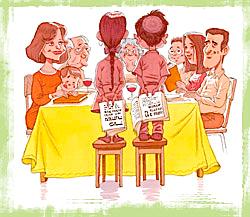
הלילב ,המל .יתרוסמ רדס םישוע ונא םירחאה רדסה תוליל לכב יכ ?םיאג ונחנא,הזה
Ki bachol lailot haseder hachrim anu asim seder masorti. Lamah, b’lailah hazeh, anachnu gaim?
Ki bachol lailot haseder hachrim anu asim seder masorti. Lamah, b’lailah hazeh, anachnu gaim?
Speaker: We are proud to be gay, straight, lesbian, bisexual, transgender, queer, and everything else under the rainbow. All of us together here add meaning to an age old Jewish tradition, and for that we have pride. As a community we have come far, and while we are not done with our struggle, we should reflect proudly upon our accomplishments as we celebrate here tonight at our LGBTQ Passover Seder.
Speaker: We are proud to be gay, straight, lesbian, bisexual, transgender, queer, and everything else under the rainbow. All of us together here add meaning to an age old Jewish tradition, and for that we have pride. As a community we have come far, and while we are not done with our struggle, we should reflect proudly upon our accomplishments as we celebrate here tonight at our LGBTQ Passover Seder.
The traditional Haggadah speaks of four sons, representing four attitudes towards Judaism. Modern feminist haggadot have created four daughters to symbolize the struggle for full female equality. Our haggadah imagines four children who ask specifically about the LGBTQ community. How can we hear them? How can we answer them?
The wise child is thirsty for guidance. They might ask: “What has God commanded of us?” “How can I be a better ally and friend?” “How can I celebrate you and help ensure that our laws and policies and spaces are LGBTQ inclusive?”
We can teach this child about LGBT milestones in the United States, including those milestones which moved us forward, like the Stonewall riots, the expansion of LGBT civil rights through marriage equality, the repeal of Don’t Ask, Don’t Tell, and employment protections, and those milestones which moved us backwards, like the AIDS epidemic and the recent rise in anti-LGBT legislation. We can encourage them to lead in synagogues and communities to ensure that forms, policies, language, and ritual are inclusive of sexuality and gender diversity.
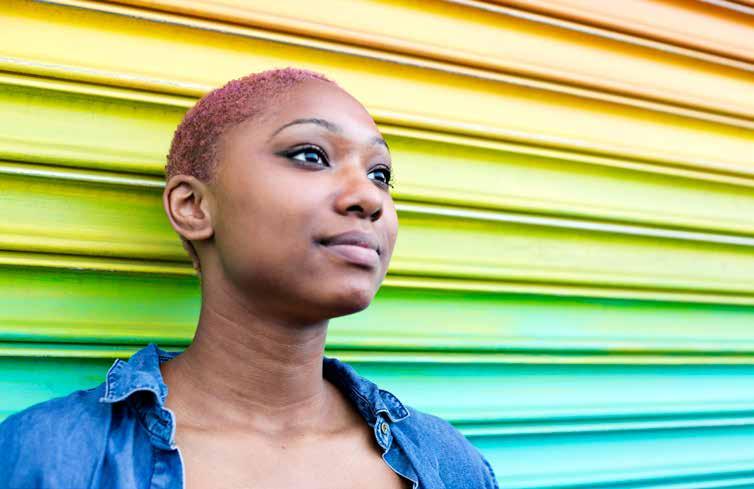
The contrary child does not see any need to ensure that LGBTQ people belong in our communities. They might ask: “Why should I do this for you?”
Those of us who value inclusion may initially feel inclined to exclude the contrary child. Including them as one of the Four Children, though, suggests that they are not fundamentally bad—simply ignorant.
We can remind them of a fundamental teaching in Torah:
“You shall not wrong nor oppress a stranger, for you were strangers in the land of Egypt (Exodus 22:20).”...
The simple child wants to know where to begin. This individual might ask: “What is this about?” To them, we can quote the following:
“V’ahavta l’rei-acha kamocha.”
“Love your neighbor as yourself.” (Leviticus 19:18)
These words of Torah are a reminder that all of us deserve to be loved – after all, there is no caveat in this law that says your neighbor is deserving of love only if they are a certain type of person…
There are those who don’t even know how to ask. We can tell them that we are all created b’tzelem Elohim (in God’s image), that we are all deserving of respect and kindness and this diversity is part of God’s gift to us as humans.
Finally, we can imagine a fifth child—one who isn’t even at the seder table because they don’t think that they belong.
This fifth child may feel lost; they may not be able to see how to reconcile their LGBTQ identity with their Jewish upbringing. We must make every effort to reach the fifth child, to live the words in the Haggadah, “Let all who are hungry come and eat.” We must keep our hearts and our homes open so they can feel welcome and included at our Seder tables.
In the words of Rabbi Rick Jacobs, president of the Union for Reform Judaism: “Audacious hospitality isn’t just a temporary act of kindness so people don’t feel excluded. It’s an ongoing invitation to be part of community—and a way to transform ourselves spiritually in the process.”
And let us say: Amen.
1. We were not born free people; we were slaves in Egypt and God freed us from Egypt with a mighty hand. Had not the Holy One liberated our people from Egypt, then we, our children and our children’s children would still be enslaved.
2. We were not born free people; we were not born believers in one God. We came from an ancestry of slaves and idol worshippers. Tonight, we celebrate not our genesis — what we were or what our ancestors were — but what we have become. We are a choosing people, and our choice has come out of tragic encounters with pagan superstition and political enslavement. We are a choosing people and we have discovered the meaning of our choice: to live as witnesses to one God who calls upon us to mend the world, to make whole the broken vessels of this incomplete world.
3. The Torah recounts the early history of the Jewish people. It describes how God commanded Abraham to leave his country and his father’s house and to go to the land of Canaan, where he would become the founder of “a great nation.” Abraham and Sarah obeyed God’s command and journeyed to Canaan. There God blessed them and their family. Their son was Isaac, who married Rebecca. Their grandson was Jacob; and it was Jacob who went down to Egypt.
4. Why did Jacob journey to Egypt? Because Joseph, his son by his beloved Rachel, had become prime minister to Pharaoh, king of Egypt. When a famine broke out in Canaan, Joseph asked his father and all his family to join him there. Then Joseph settled his family in the finest lands in Egypt, the land of Goshen, as Pharaoh had commanded. The children of Jacob, that is, the Children of Israel were fruitful and multiplied exceedingly.
5. Joseph died, and all his family, and all that generation. Now there arose a new Pharaoh over Egypt, who knew not Joseph. And he said unto his people, “Behold, the people of the children of Israel are too many and too mighty for us; come, let us deal wisely with them, lest they multiply, and it come to pass, that if there be a war, they join themselves unto our enemies and fight against us.” Therefore Pharaoh set over them taskmasters to afflict them with burdens. But the more the Egyptians afflicted them, the more the Israelites multiplied and the more they spread abroad.
6. The cruelest decree of all was the Pharaoh’s order that every baby boy born to an Israelite woman be drowned in the River Nile. One couple, Amram and Yocheved, would not kill their newborn son. Instead, they hid him in their hut for three months. When his cries became too loud, Yocheved placed him in a basket on the river. Their daughter Miriam watched to see what would happen.
7. As the Pharaoh’s daughter came to bathe in the river, she discovered the basket. She felt pity for the helpless child and decided to keep him as her own. She named him Moshe (Moses), which means “drawn from the water.” Bravely, Miriam asked the princess if she needed a nurse to help her with the baby. The princess said yes, and so it happened that Yocheved was able to care for her own son and teach him about his heritage.
8. Moses would have lived at the Pharaoh’s palace forever, but he could not ignore the suffering of his people. Once when he saw an Egyptian beating an Israelite slave, he could not control his anger, and he killed the Egyptian. His Hebrew identity likely exposed by another Israelite, Moses fled to the land of Midian where he became a shepherd.
9. One day, while tending sheep on Mount Horeb, Moses saw a bush that seemed to be on fire, but was not burning up. From the bush, he heard God’s voice calling him. God said, “I am the God of your ancestors. I have seen the suffering of the Israelites and have heard their cries. I am ready to take them out of Egypt and bring them to a new land, a land flowing with milk and honey.”
10. God told Moses to return to Egypt to bring the message of freedom to the Israelites and to warn Pharaoh that God would bring plagues on the Egyptians if he did not let the slaves go free. Moses was such a humble person that he could not imagine being God’s messenger. “I will be with you,” God promised Moses. With this assurance and challenge, Moses set out for Egypt.
11. When Moses demanded that Pharaoh free the Israelites, Pharaoh refused. God then brought ten plagues on the Egyptians. Each one frightened Pharaoh, and each time he promised to free the slaves. But when each plague ended, Pharaoh did not keep his word. It was only after the last plague, the death of the firstborn of the Egyptians, that Pharaoh agreed to let the Israelites go. And so it was that God brought us forth out of Egypt, with a mighty hand and with an outstretched arm and with great terror and with signs and with wonders.
12. The experience of the Exodus was transforming; it made us a free people forever. From the time of the Exodus we remained free, even in midst of subsequent oppressions. No matter how oppressed we are, deep inside we remain free.
Miriam’s Song by Debbie Friedman
CHORUS:
And the women dancing with their tumbrels, Followed Miriam as she sang her song, Sing a song to the One whom we’ve exalted, Miriam and the women danced and danced the whole night long.
And Miriam was a weaver of unique variety
The tapestry she wove was one which sang our history.
With every thread and every strand she crafted her delight!
A woman touched with spirit, she dances toward the light.
CHORUS
When Miriam stood upon the shores and gazed across the sea
The wonder of this miracle she soon came to believe.
Whoever thought the sea would part with an outstretched hand
And we would pass to freedom and march to the promised land!
CHORUS
And Miriam the prophet took her tumbrel in her hand,
And all the women followed her just as she had planned,
And Miriam raised her voice in song—
She sang with praise and might
We’ve just lived through a miracle (yelled): We’re going to dance tonight!
CHORUS
According to Midrash, when the Israelites passed safely across the Red Sea and the great waters closed over the heads of the Egyptians, the angels above began to sing and dance. turned to the angels and cried, "How dare you weep, as my children lie dying." We symbolically remove drops of wine from our glasses as we recite the ten plagues in order to recall that often when one group rejoices, others feel pained.
According to Midrash, when the Israelites passed safely across the Red Sea and the great waters closed over the heads of the Egyptians, the angels above began to sing and dance. God turned to the angels and cried, “How dare you weep, as my children lie dying.” We symbolically remove drops of wine from our glasses as we recite the ten plagues in order to recall that often when one group rejoices, others feel pained.
Makat Bechorot; Death of the firstborn eser makot she-heivi hakadosh baruckh hu ha-mitzrim b’mitzraim. V’eilu hen:
ךורב שודקה איבהש תוכמ רשע ולא
ןה ולאו םירצמב םירצמה לע אוה
Eilu eser makot she-heivi hakadosh baruckh hu al ha-mitzrim b’mitzraim. V’eilu hen:
These are the ten plagues that the Holy One, blessed be Hashem, sent upon the Egyptians in Egypt. And they are:
These are the ten plagues that the Holy One, blessed be Hashem, sent upon the Egyptians in Egypt. And they are:
מדמד םד עדרפצ םינכ
בורע
רבד ןיחש
דרב
הברא
ךשח
תורוכב תכמ
Dam; Blood
Tzefardea; Frogs
םד
עדרפצ
Dam; Blood
Kinim; Lice
Tzefardea; Frogs
Arov; Flies, Beetles
םניכ
Kinim; Lice
Dever; Sickness of Cattle
בורע
רבד
Arov; Flies, Beetles
Shechin; Boils Barad; Hail
יןחש
דרב
Dever; Sickness of Cattle
Shechin; Boils
Arbeh; Locusts Choshekh; Darkness
הברא
ךשח
תורוכב
תכמ
Barad; Hail
Arbeh; Locusts
Choshekh; Darkness
Makat Bechorot; Death of the firstborn
We recite another ten plagues, plagues against our queer community, which have diminished us for too long.
The blood shed in the Nazi death camps and in queer-bashings.
The laughter caused by our stereotyped representation in jokes and in the media.
The guilt we are told is inherent in our simple existence.
The shame we are made to feel when we share our lives and our bodies with someone of the same gender as ourselves.
The despair we feel when we are told that we are evil and monstrous, that AIDS is God’s judgment upon us.
The fear caused by a hostile society that might cast us out if it knew who we are.
The physical pain of being attacked by homophobes and transphobes, and the mental pain of being rejected by family, by synagogue, and by community.
The loneliness of thinking that we are the only one of our kind.
The darkness of our closets.
The hollow silence of when we do not speak out in our own defense, the silence from one generation to another.
Though we may not have individually suffered each plague, we acknowledge the suffering of our queer community, and we vow not to be complacent about the suffering of all those who are bound.
The turn from narrowness to freedom happens not in one momentous splitting of the sea, but in the long process of acknowledging and naming oppression, of speaking truth to power, of honoring our stories, and of walking bravely onto the dry land, with the water like a wall to our right and to our left.
We sing together words to express our gratitude for all the steps along the way to full inclusion and freedom for all.
The song Dayenu enumerates the myriad blessings we have to be thankful for. The traditional text recalls God's miracles and blessings upon the Israelites. Yet as a LGBTQ community, we too have much to rejoice in.
The song Dayenu enumerates the myriad blessings we have to be thankful for. The traditional text recalls God's miracles and blessings upon the Israelites. Yet as a LGBTQ community, we too have much to rejoice in.
The song Dayenu enumerates the myriad blessings we have to be thankful for. The traditional text recalls God’s miracles and blessings upon the Israelites. Yet as a LGBTQ community, we too have much to rejoice in.
Verse 1:
The song Dayenu enumerates the myriad blessings we have to be thankful for. The traditional text recalls God's miracles and blessings upon the Israelites. Yet as a LGBTQ community, we too have much to rejoice in.
Verse 1:
Verse 1:
Verse 1:
If Hashem had brought us out from Egypt, Ilu hotzianu mimitzrayim, םִירְָצִמִּמ וּנָאיִצוֹה וּלִּא
If Hashem had brought us out from Egypt, Ilu hotzianu mimitzrayim, םִירְָצִמִּמ וּנָאיִצוֹה
If Hashem had brought us out from Egypt, and had not carried out judgments against them — Dayenu, it would have sufficed!
If Hashem had brought us out from Egypt, Ilu hotzianu mimitzrayim, םִירְָצִמִּמ וּנָאיִצוֹה
and had not carried out judgments against them v'lo asah bahem sh'fatim, םֶהָבּ הָׂשָע אלְֹו
and had not carried out judgments against them
v'lo asah bahem sh'fatim, םֶהָבּ
and had not carried out judgments against them v'lo asah bahem sh'fatim, םֶהָבּ הָׂשָע אלְֹו םיִטָפְׁש
— Dayenu, it would have sufficed! dayeinu! וּנֵּיּדַ
— Dayenu, it would have sufficed! dayeinu! וּנֵּיּדַ
— Dayenu, it would have sufficed! dayeinu!
Verse 2:
Verse 2:
Verse 2:
Verse 2:
If God had carried out judgments against them, and not against their idols — Dayenu, it would have sufficed!
Ilu hotzianu mimitzrayim, v’lo asah bahem sh’fatim, dayeinu!
If God had carried out judgments against them, Ilu asah bahem sh'fatim םֶהָבּ הָׂשָע וּלִּא
Ilu asah bahem sh’fatim
If God had carried out judgments against them, Ilu asah bahem sh'fatim םֶהָבּ
If God had carried out judgments against them, Ilu asah bahem sh'fatim םֶהָבּ הָׂשָע
and not against their idols v'lo asah be'eloheihem, םֶהיֵהלֱֹאֶבּ
and not against their idols v'lo asah be'eloheihem, םֶהיֵהלֱֹאֶבּ
— Dayenu, it would have sufficed! dayeinu!
v’lo asah be’eloheihem, dayeinu!
and not against their idols v'lo asah be'eloheihem, םֶהיֵהלֱֹאֶבּ
— Dayenu, it would have sufficed! dayeinu!
— Dayenu, it would have sufficed! dayeinu! וּנֵּיּדַ
Verse 3:
Verse 3:
Verse 3:
Verse 3:
If God had destroyed their idols,
If God had destroyed their idols, and had not smitten their firstborn — Dayenu, it would have sufficed!
Ilu asah be'eloheihem, םֶהיֵהלֱֹאֶבּ
If God had destroyed their idols, Ilu asah be'eloheihem, םֶהיֵהלֱֹאֶבּ הָׂשָע
If God had destroyed their idols, Ilu asah be'eloheihem, םֶהיֵהלֱֹאֶבּ
and had not smitten their firstborn v'lo harag et b'choreihem, םֶהירֵוֹכְבּ
Ilu asah be’eloheihem, v’lo harag et b’choreihem, dayeinu!
and had not smitten their firstborn v'lo harag et b'choreihem, םֶהירֵוֹכְבּ
and had not smitten their firstborn v'lo harag et b'choreihem, םֶהירֵוֹכְבּ
— Dayenu, it would have dayeinu!
— Dayenu, it would have sufficed! dayeinu! וּנֵּיּדַ
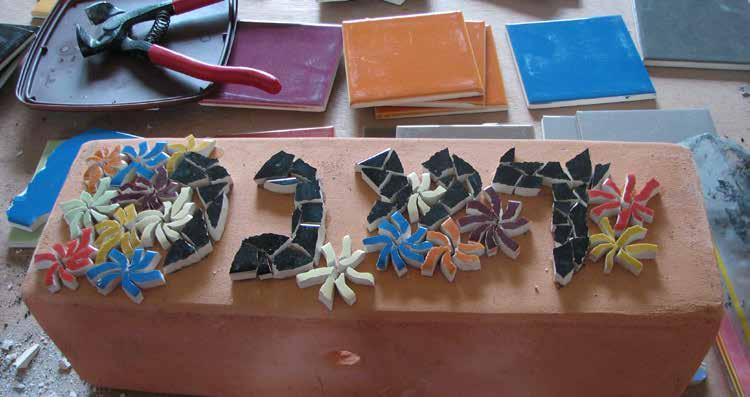
The traditional Dayenu song proclaims what would have been enough, recognizing the many blessings given to the Jewish people at each step of their struggle. Tonight let us commit ourselves to the work ahead by telling ourselves, Lo Dayenu! (It is not enough!)
If we were proud of ourselves, But were still afraid to come out at home to family and friends, and at school and at work Then it would not be enough for us.
— Lo Dayenu, it would not suffice!
If we were not afraid to come out, But did not have many spiritual homes that embraced us, and fully reflected our community, in both leadership and group roles, Then it would not be enough for us.
— Lo Dayenu, it would not suffice!
If we had many spiritual homes, But did not have full recognition and protections for our relationships and families—in whatever that family may look like— across all state and international borders, Then it would not be enough for us.
— Lo Dayenu, it would not suffice!
If we had full recognition of our families, But many LGBTQ people still feared persecution, hate, or violence; and other people suspected of being LGBTQ still feared the same. Then it would not be enough for us.
— Lo Dayenu, it would not suffice
— Lo Dayenu, it would not suffice
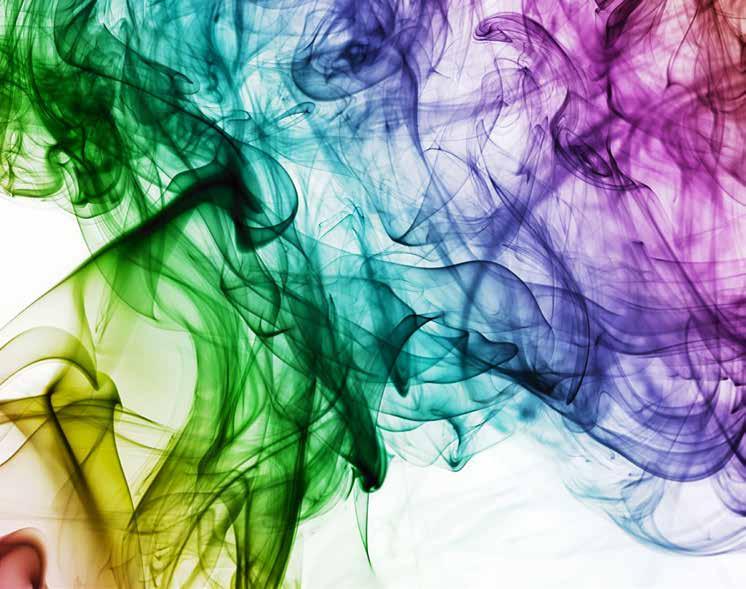
Leader: At this time we pour, but do not yet partake of, the Second Cup (kos sheini). First, we recall that there are three essential elements to every Jewish seder: the pesach (paschal lamb), the matzah, and the maror.
Rabban Gamliel, the first century sage who compiled the Hagaddah, taught: “Those who have not explained these three things during the Seder have not fulfilled their obligation: PESACH, MATZAH, MAROR.”
On Passover, we eat theology and drink ethics. On our plates, in our cups, with the posture of our bodies, in the gesture of our hands, in the way we eat and drink and sing, in the way we converse with one another are found the teaching of a people’s faith and ethics. As we read the traditional explanations below, we are challenged to consider additional meanings:
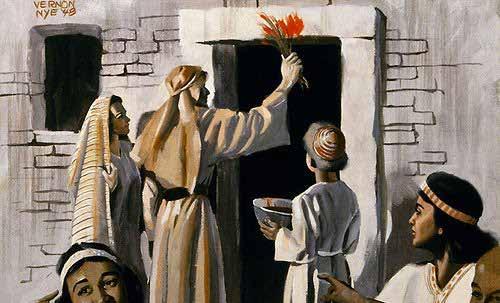
Point to pesach
When the great Temple of Jerusalem was still in existence, our ancestors ate a special sacrificial offering called the Pesach. The word “Pesach” means to “pass over.” The offering was eaten as a symbol that God passed over the houses of the Israelites, as the Torah teaches: “You shall say: This is the Pesach offering we offer to God, because God passed over the houses of the Israelites when God destroyed the Egyptians, but our homes God saved.” (Exodus 12:27)
Point to matzah.
Why do we eat matzah? To remember that even before our ancestor’s dough had time to rise, God was revealed to them and saved them. As the Torah teaches: “And they baked the dough which they had brought from Egypt into matzah; it did not rise since they hurried out of Egypt, and they could not delay, nor had they prepared other provisions for themselves.” (Exodus 12:39)
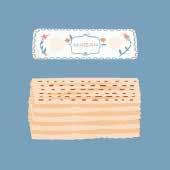
Point to maror.
Why do we eat bitter foods? To remember that the Egyptians, as the Torah teaches, “embittered the lives of our ancestors with hard labor in mortar and brick, and in every manner of drudgery in the field; and worked them ruthlessly in all their labor.” (Exodus 1:14) Today let us also remember the embittered lives of millions of LGBTQ people who came before us.
The bitter herbs may not be quickly swallowed. They must be chewed and tasted. It is not enough to talk abstractly about oppression, to analyze the causes which led to it, to read about the atrocity. To the best of our ability we are to experience the lives embittered by totalitarian punishment. To taste the bitter herbs is part of the process of feeling the affliction of body and spirit which a subjugated people suffers. Yet, when the maror is eaten, it is mixed with the cinnamoned charoset, perhaps to teach us that memory cannot be immersed only in darkness and despair. The sweet mixture is not the dominant taste as the maror is dipped in the charoset. The charoset is not meant to eradicate the bitter, only to remind us that there is goodness in the world, however small, and hope in the future, however slight. Without the charoset, the only lasting memory would be that of torture and shame.
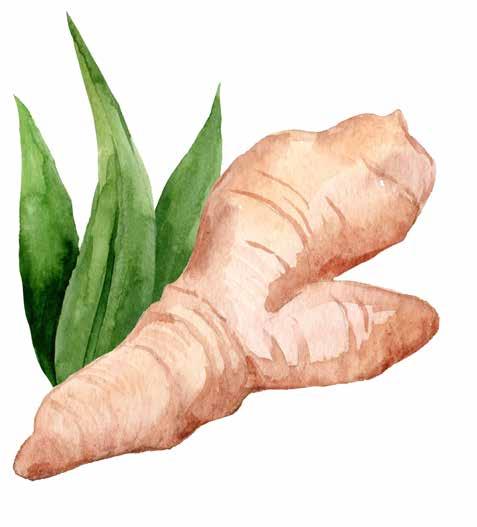
Point to orange.
In the early 1980s, Susannah Heschel attended a feminist seder at which bread was placed on the seder plate, as a reaction to a rabbi’s wife who had claimed lesbians had no more place in Judaism than bread crusts have on a seder plate. “Bread on the seder plate…renders everything chametz, and its symbolism suggests that being lesbian is transgressive, violating Judaism,” Heschel writes.
“I felt that an orange was suggestive of something else: the fruitfulness for all Jews when lesbians and gay men are contributing and active members of Jewish life. In addition, each orange segment had a few seeds that had to be spit out – a gesture of spitting out, repudiating the homophobia of Judaism.” To speak of slavery and long for liberation, she says, “demands that we acknowledge our own complicity in enslaving others.”
One additional item on our seder plate, therefore, is an orange, representing the radical feminist notion that there is—there must be—a place at the table for all of us, regardless of gender or sexual orientation. As Jews we constantly re-create ourselves; our symbol is a fruit that carries within the seeds of its own rebirth.
— The Velveteen Rabbi Haggadah
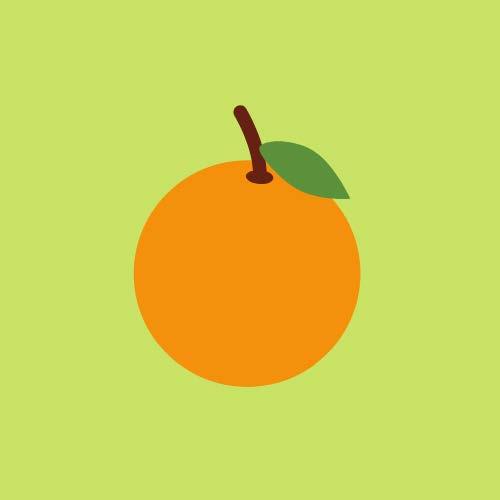
It is fitting that we rejoice the miracle of liberation and the ability to gather openly. Therefore, let us rejoice at the miracle of our liberation, and thank God who brought us to this point. Never forgetting the work have ahead, to end legalized discrimination and combat homophobia, let us nevertheless sing before God a new song,
Halleluyah!
It is fitting that we rejoice the miracle of liberation and the ability to gather openly. Therefore, let us rejoice at the miracle of our liberation, and thank God who brought us to this point. Never forgetting the work have ahead, to end legalized discrimination and combat homophobia, let us nevertheless sing before God a new song, Halleluyah!
Psalm 113
Psalm 113
Praise God.
Praise God.
Praise God, you the servants; praise the name of Hashem. Let the name of God be praised, both now and forevermore.
Praise God, you the servants; praise the name of Hashem. Let the name of God be praised, both now and forevermore. From the rising of the sun to the place where it sets, the name of God is to be praised. Hashem is exalted over all the nations, God’s glory above the heavens. Who is like Hashem our God, the One who sits enthroned on high, who stoops down to look on the heavens and the earth? God raises the poor from the dust and lifts the needy from the ash heap; God seats them with princes, with the princes of his people. God settles the childless woman in her home as a happy mother of children. Praise God.
From the rising of the sun to the place where it sets, the name of God is to be praised. Hashem is exalted over all the nations, God’s glory above the heavens. Who is like Hashem our God, the One who sits enthroned on high, who stoops down to look on the heavens and the earth? God raises the poor from the dust and lifts the needy from the ash heap; God seats them with princes, with the princes of his people. God settles the childless woman in her home as a happy mother of children.
Praise God.
Psalm 114
Psalm 114
When Israel went out of Egypt, Jacob’s household from a people of strange speech, Judah became God’s sanctuary, Israel His kingdom. The sea saw it and fled; the Jordan turned backward. The mountains skipped like rams, and the hills like lambs. Why is it, sea, that you flee? Why, O Jordan, do you turn backward? You mountains, why do you skip like rams? You hills, why do you leap like lambs? O earth, tremble at God’s presence,
When Israel went out of Egypt, Jacob's household from a people of strange speech, Judah became God's sanctuary, Israel His kingdom. The sea saw it and fled; the Jordan turned backward. The mountains skipped like rams, and the hills like lambs. Why is it, sea, that you flee? Why, O Jordan, do you turn backward? You mountains, why do you skip like rams? You hills, why do you leap like lambs? O earth, tremble at God’s presence,
B’tzeit Yisrael mimitzrayim, beit Ya’akov mei’am lo’eiz, haytah yihudah likodsho, Yisrael mamshilotav.
Hayam ra’ah vayanos, hayardein yisov l’achor.
B’tzeit Yisrael mimitzrayim, beit Ya’akov mei’am lo’eiz, haytah yihudah likodsho, Yisrael mamshilotav. Hayam ra’ah vayanos, hayardein yisov l’achor.
Heharim rakedu che’eilim, giva’ot m kivnei tzon.
Heharim rakedu che’eilim, giva’ot m kivnei tzon.
Mah l’cha hayam ki tanus, hayardein m tisov l’achor, heharim tirkedu che’eilim, givaot m kivnei tzon.
Mah l’cha hayam ki tanus, hayardein m tisov l’achor,
heharim tirkedu che’eilim, givaot m kivnei tzon.
Milifnei adon chuli aretz, milifnei eloha Ya’akov.
Milifnei adon chuli aretz, milifnei eloha Ya’akov.
Hahofchi hatzur agam mayim, chalamish m lemayno mayim.
Hahofchi hatzur agam mayim, chalamish m lemayno mayim.
What can you share with this community to help us weather change and grow?
We recite: Praised are You, Hashem, our God, whose Presence fills the universe, who has redeemed us and our ancestors from Egypt, who has brought us to this night when we eat matzah and marror. Hashem, our God and God of our ancestors, enable us to celebrate in peace other holy days and festivals. We will sing a new song of thanksgiving for our redemption and for our spiritual liberation. Praised are You, the redeemer God.
(blessing to follow)
We recite: Praised are You, Hashem, our God, whose Presence fills the universe, who has redeemed us and our ancestors from Egypt, who has brought us to this night when we eat matzah and marror. Hashem, our God and God of our ancestors, enable us to celebrate in peace other holy days and festivals. We will sing a new song of thanksgiving for our redemption and for our spiritual liberation. Praised are You, the redeemer God. ןפגה ירפ ארוב םלועה ךלמ וניהלא הי התא
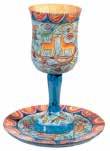
Baruch atah Adonai, Eloheinu melech ha-olam, borei p'ri ha-gafen.
Baruch atah Adonai, Eloheinu melech ha-olam, borei p’ri ha-gafen.
Praised are You, Hashem, our God, whose Presence fills the universe, who creates the fruit of the vine.
Baruch atah Adonai, Eloheinu melech ha-olam, borei p'ri ha-gafen.
Praised are You, Hashem, our God, whose Presence fills the universe, who creates the fruit of the vine.
Drink the wine.
Praised are You, Hashem, our God, whose Presence fills the universe, who creates the fruit of the vine.
Drink the wine.
Drink the wine.
Wash hands with water and say the following blessing.
Wash hands with water and say the following blessing.
Wash hands with water and say the following blessing.
םלועה
Baruch atah Adonai Eloheynu melech ha-olam asher kid-shanu b'mitzvotav v'tzee'vanu al ne'teelat yadaim.
Baruch atah Adonai Eloheynu melech ha-olam asher kid-shanu b'mitzvotav v'tzee'vanu al ne'teelat yadaim.
Baruch atah Adonai Eloheynu melech ha-olam asher kid-shanu b’mitzvotav v’tzee’vanu al ne’teelat yadaim.
Praised are You, Hashem, our God, whose Presence fills the universe, who has sanctified our lives through Your commandments and commanded us to perform this washing of the hands.
Praised are You, Hashem, our God, whose Presence fills the universe, who has sanctified our lives through Your commandments and commanded us to perform this washing of the hands.
Praised are You, Hashem, our God, whose Presence fills the universe, who has sanctified our lives through Your commandments and commanded us to perform this washing of the hands.

Baruch atah Adonai Eloheynu melech ha-olam ha-motzi lechem min ha-aretz.
Baruch atah Adonai Eloheynu melech ha-olam ha-motzi lechem min ha-aretz.
Baruch atah Adonai Eloheynu melech ha-olam ha-motzi lechem min ha-aretz.
Praised are You, Hashem, our God, whose Presence fills the universe, who brings forth bread from the earth.
Praised are You, Hashem, our God, whose Presence fills the universe, who brings forth bread from the earth.
Praised are You, Hashem, our God, whose Presence fills the universe, who brings forth bread from the earth.
Baruch atah Adonai Eloheynu melech ha-olam ha-motzi lechem min ha-aretz.
Baruch atah Adonai Eloheynu melech ha-olam ha-motzi lechem min ha-aretz.
Baruch atta Adonai Eloheynu melech ha-olam asher kid-shanu b'mitzvotav v'tzee'vanu al achilat matzah.
Praised are You, Hashem, our God, whose Presence fills the universe, who brings forth bread from the earth.
Baruch atta Adonai Eloheynu melech ha-olam asher kid-shanu b'mitzvotav v'tzee'vanu al achilat matzah.
Baruch atah Adonai Eloheynu melech ha-olam asher kid-shanu b’mitzvotav v’tzee’vanu al achilat matzah.
Praised are You, Hashem, our God, whose Presence fills the universe, who brings forth bread from the earth.
Praised are You, Hashem, our God, whose Presence fills the universe, who has sanctified our lives through Your commandments and commanded us to partake of matzah.
הצמ תליכא לע ונוצו ויתוצמב: ץראה ןמ םחל איצומה ,םלועה ךלמ וינהלא יי אתא ךורב
הצמ תליכא לע ונוצו ויתוצמב: ץראה ןמ םחל איצומה ,םלועה ךלמ וינהלא יי אתא ךורב
Praised are You, Hashem, our God, whose Presence fills the universe, who has sanctified our lives through Your commandments and commanded us to partake of matzah.
Praised are You, Hashem, our God, whose Presence fills the universe, who has sanctified our lives through Your commandments and commanded us to partake of matzah.
Eat the matzah.
Eat the matzah.
Baruch atta Adonai Eloheynu melech ha-olam asher kid-shanu b'mitzvotav v'tzee'vanu al achilat matzah.
Eat the matzah.
Baruch atta Adonai Eloheynu melech ha-olam asher kid-shanu b'mitzvotav v'tzee'vanu al achilat matzah.
Praised are You, Hashem, our God, whose Presence fills the universe, who has sanctified our lives through Your commandments and commanded us to partake of matzah.

Praised are You, Hashem, our God, whose Presence fills the universe, who has sanctified our lives through Your commandments and commanded us to partake of matzah.
Eat the matzah.
Baruch atah Adonai Eloheynu Melech ha-olam asher kid-shanu b'mitzvotav v'tzee'vanu al achilat marror.
Baruch atah Adonai Eloheynu Melech ha-olam asher kid-shanu b'mitzvotav v'tzee'vanu al achilat marror.
רורמ תליכא לע ונוצו ויתוצמב: ונשדק רשא ,םלועה ךלמ וניהלא יי התא ךורב
Eat the matzah.
ונשדק רשא ,םלועה ךלמ וינהלא יי אתא ךורב
ונשדק רשא ,םלועה ךלמ וינהלא יי אתא ךורב
רורמ תליכא לע ונוצו ויתוצמב: ונשדק רשא ,םלועה ךלמ וניהלא יי התא ךורב
Praised are You, Hashem, our God, whose Presence fills the universe, who has sanctified our lives through Your commandments and commanded us to partake of marror.
Praised are You, Hashem, our God, whose Presence fills the universe, who has sanctified our lives through Your commandments and commanded us to partake of marror.
Baruch atah Adonai Eloheynu Melech ha-olam asher kid-shanub’mitzvotav v’tzee’vanu al achilat maror.
Eat the marror.
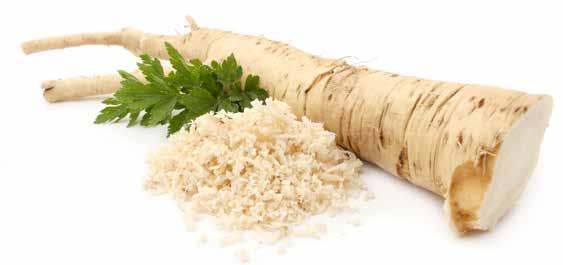
Praised are You, Hashem, our God, whose Presence fills the universe, who has sanctified our lives through Your commandments and commanded us to partake of maror.
Baruch atah Adonai Eloheynu Melech ha-olam asher kid-shanu b'mitzvotav v'tzee'vanu al achilat marror.
Eat the marror.
Baruch atah Adonai Eloheynu Melech ha-olam asher kid-shanu b'mitzvotav v'tzee'vanu al achilat marror.
Eat the maror.
Praised are You, Hashem, our God, whose Presence fills the universe, who has sanctified our lives through Your commandments and commanded us to partake of marror.
Praised are You, Hashem, our God, whose Presence fills the universe, who has sanctified our lives through Your commandments and commanded us to partake of marror.
Eat the marror.
Eat the marror.
the sage Hillel, eating Matzah and Marror together was not a trivial matter. To him, slavery and freedom were merged into one historical event. The bread of poverty became the bread of freedom and should be tasted together with the bitter marror, so that one should know the bitterness of slavery and the joy of freedom. Today, we must not forget the bitterness of oppression; we must keep alive the hope of equality.
To the sage Hillel, eating Matzah and Maror together was not a trivial matter. To him, slavery and freedom were merged into one historical event. The bread of poverty became the bread of freedom and should be tasted together with the bitter maror, so that one should know the bitterness of slavery and the joy of freedom. Today, we must not forget the bitterness of oppression; we must keep alive the hope of equality. All say: This is a remembrance of Hillel in Temple times — This is what Hillel did when the Temple existed: He enwrapped the Paschal lamb, the matzo and the bitter herbs to eat them as one, in fulfillment of the verse, “with matzot and maror they shall eat it.”(Numbers 9:11)
say: This is a remembrance of Hillel in Temple times — This is what Hillel did when the Temple existed: He enwrapped the Paschal lamb, the matzo and the bitter herbs to eat them as one, in fulfillment of the verse, "with matzot and marror they shall eat it."(Numbers 9:11)
Make a sandwich of matzah and maror and eat.
Make a sandwich of matzah and marror and eat.
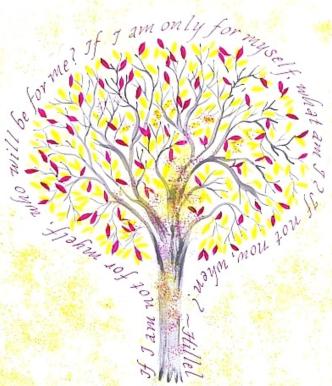
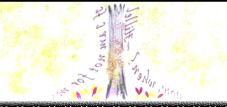
The seder is not over. No celebration is complete without food, and our festive meal is an integral part of our seder. As we partake of this meal, please continue the conversations we’ve started on freedom and equality.
Eat the meal!
The seder is not over. No celebration is complete without food, and our festive meal is an integral part of our seder.
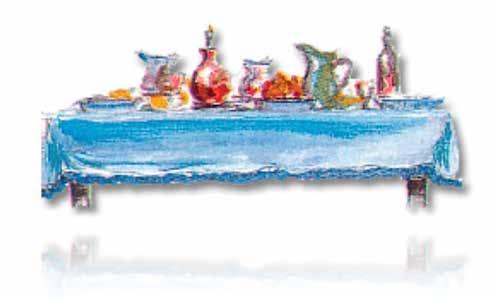
we partake of this meal, please continue the conversations we’ve started on freedom and equality. the meal!
At this time, we send out the youngest among us to retrieve the hidden Afikoman. In Kabbalah, Jewish mysticism, it is explained that there is something deeper than the soul. We are taught that as humans we have not only a body and spirit, but there is also an essence within each of us. It is the spirit concealed, hidden, within our hearts. This essence is called tzafun, literally meaning “hidden,” out of sight, secret. The word tzafun is also the Hebrew word for “north” and is the root of the name of the Israeli city, Tzfat, the birthplace of Kabbalah. The mystics teach that in our day to day lives we move around the this hidden place, it is out of sight, forgotten. Our lives are too cluttered for us to really feel our tzafun. At times, we attempt to touch that inner core, perhaps through meditation, yoga, art, music, or deep prayer.
However, on Passover night, we have the power to reach our tzafun. But only after all the steps leading up to this very moment: Destroying our personal chametz, and the eleven steps of the Seder until now. At this point we awaken, newly freed, and are able to connect every single cell, every piece, every facet of ourselves to God. That’s when the power comes to us. Whether we sense it or not, tasteless as it may seem, the matzah now reaches deep into our core and transforms our being. Those things you find inspiring and nice may take you a single step forward. But if you want to affect real change, you need to do something totally beyond your personal bounds. This is the heart of Passover.
So too as the LGBTQ community, we strive to transcend our bounds—those imposed from outside and from within—and to reach a core essence of being, or understanding, or relationships with one another, our loved ones, and our communities.
We send the youngest among us to find the Afikomen, but we also recognize that it is through the ensuing generations that our efforts will bear fruit. It is through the young that change truly becomes manifest.


As we enjoy our festive meal amongst community, what connections and meaning can we make together?
(blessing to follow)
Praised are You, Hashem, our God, whose Presence fills the universe, who creates the fruit of the vine.

Drink the wine.
The prophet Elijah symbolizes the dreams of the Jewish people. Elijah challenged the injustices of a king, and brought idol-worshiping Israelites back to the service of God. He healed the sick and protected the helpless. At the end of his days, his disciple, Elisha, had a vision of Elijah carried off to heaven in fiery chariot. The prophet Malachi promised that Elijah would return one day to herald the time when all of the world would be redeemed. In rabbinic tradition, Elijah appears to worthy families disguised as a pauper, and in return for small acts of kindness bestows great miracles.
Legend relates that the prophet Elijah is present each day to carry forward the work of bringing justice and peace. Let us pour this cup to commit to carrying forward the work of bringing justice and peace.
Eliyahu ha-navi. Eliyahu Ha-Tishbi. Eliyahu Ha-Giladi Bimheira v’yameinu yavo aleinu im mashiach Ben david

Miriam’s Cup is a relatively new ritual for the Passover seder. Its purpose is to honor the role of Miriam the Prophet in the Exodus, who saved Moses, supplied fresh water to sustain the Israelites through the desert, and brought song and dance. Miriam represents courage, healing, and renewal, and she highlights the contributions of women to Jewish culture, past and present. The Passover Exodus story of oppression and liberation echoes feminist and queer struggles. Thus, Passover is the ideal holiday to highlight concerns about equality and inclusion for all, and to interpret and remake Jewish traditions and create rituals to more visibly value the contributions of those who have been historically ignored or excluded.
Hallel with Psalms 115-118 would normally occur at this point but have been omitted in this edition.
Miriam the prophet, strength and song in her hand
Miriam dance with us in order to increase the song of the world.
Miriam dance with us in order to repair the world. Soon she will bring us to the waters of redemption.
Miriam ha-n’vi’ah oz v’zimrah b’yadah.
Miriam tirkod itanu l’hagdil zimrat olam.
Miriam tirkod itanu l’taken et ha-olam.
Bimheyrah v’yameynu hi t’vi’einu el mey ha-y’shuah.
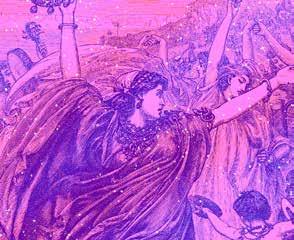
How can you capture the power of this experience to carry peace with you as you return to the world?
(blessing to follow)
Fill the fourth cup of wine.
ירפ ארוב םלועה ךלמ וניהלא הי
Fill the fourth cup of wine.
Baruch atah Adonai, Eloheinu melech ha-olam, borei p'ri ha-gafen.
Baruch atah Adonai, Eloheinu melech ha-olam, borei p’ri ha-gafen.
Praised are You, Hashem, our God, whose Presence fills the universe, whocreates the fruit of the vine.
Praised are You, Hashem, our God, whose Presence fills the universe, who creates the fruit of the vine.
Drink the wine.
Drink the wine.
Nirtzah -- הצרנ years we have been leaving Egypt. For 3,300 years we this world into light. At times, like Moses at the present among us. And now, we must continue in that spirit, pursuing freedom and upon all of us and upon all Israel. Let us all sa

For 3,300 years we have been leaving Egypt. For 3,300 years we have labored to transform the darkness of this world into light. At times, like Moses at the burning bush, we have felt God powerfully present among us. And now, we must continue in that spirit, pursuing freedom and equality for upon all of us and upon all Israel. Let us all say: Amen.
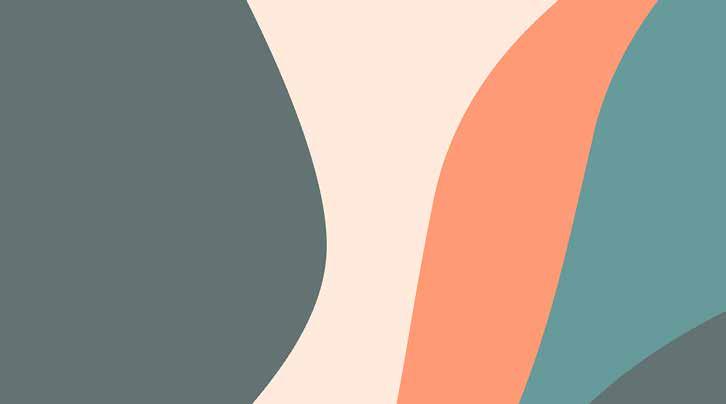
Let us sing:
Let us sing:
ןמא ורמאו לארשי לכ לעו ,ונילע םולש השעי אוה ,וימורמב םולש השוע
Oseh Shalom
Oseh Shalom
Oseh Shalom Bimromav
Oseh Shalom Bimromav
Hu Ya-aseh Shalom Aleinu
Hu Ya-aseh Shalom Aleinu
Ve’Al Kol Yisrael
(v’al kol yoshvai tevel)
Ve’Imru Amen
Ve'Al Kol Yisrael (v'al kol yoshvai tevel)
Ve'Imru Amen
May the One who makes peace above make peace descend on all of us and all of Yisrael (and upon all existence…) And let us say Amen
May God who makes peace in the heavens make peace
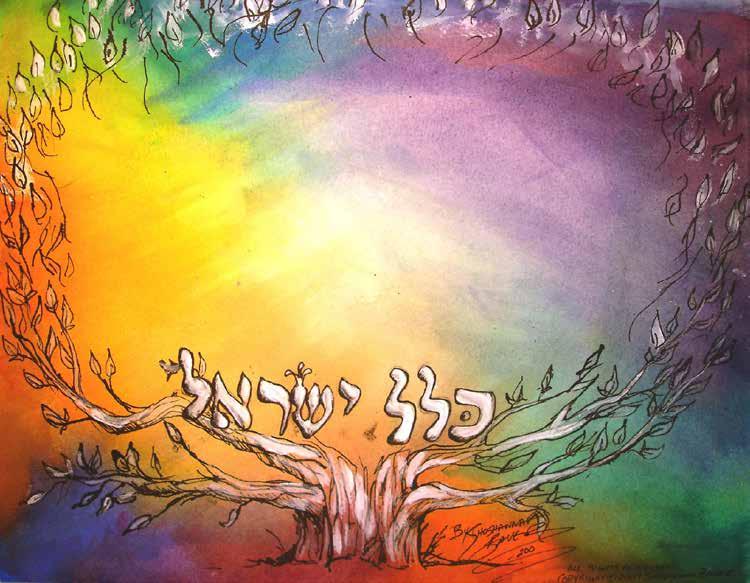
First verse:
Who knows one?
First verse:
I know one.
Who knows one?
One is our God, in heaven and on earth.
I know one.
One is our God, in heaven and on earth.
Second verse:
Second verse:
Who knows two?
Who knows two?
I know two.
I know two.
Two are the tablets of the covenant; One is our God, in heaven and on earth.
Two are the tablets of the covenant; One is our God, in heaven and on earth.
1. One is Hashem, one is Hashem, one is Hashem! In the Heaven and the Earth
2. Two are the tablets that Moshe brought;
Our Passover Haggadah has been created with much care, by GLOE—The Kurlander Program for GLBTQ Outreach & Engagement—at the Edlavitch DC Jewish Community Center. Its compilation is the result of myriad inspirations, joining original created work with various outside sources (as cited), to tell stories of freedom and equality. Our deepest appreciation goes to Shane Cusumano, this Haggadah’s primary creator, whose thoughtfulness, creativity, and careful attention shine through these pages in countless ways. We are also grateful to those other individuals who have helped to create this work over the years, through their contributed words and guidance: Rabbi Joel Alter, Rabbi David Dunn Bauer, Yoni Bock, Halley Cohen, Marlene Cohen, Amy Cotton, Shira Frank, Alex Greenbaum, Nico Quintana, Rabbi Susan Talve, Rabbi Jason Kimelman-Block, and Rabbi Gil Steinlauf. Additionally, we are grateful for the commitment of longtime GLOE leaders and supporters including founder Stuart Kurlander, Committee Chairs Michael Singer and Jonathan Edelman, Edlavitch DCJCC CEO Jen Zwilling, the Edlavitch DCJCC Board of Directors, Rabbi Atara Cohen, Rabbi Jake Singer-Beilin and our Rainbow Seder Planning Committee.
We gratefully acknowledge material found in the following sources: Chabad.org; Gay Jewish Network of Michigan (cover image); A Humanist Modern Version Haggadah for Passover; Passover Haggadah, by Valley Beth Shalom of Encino, California; Stonewall Seder Haggadah, by Judy Freespirit, Dan Kane, and Laurel and Francey Liefert; Tel Shemesh; The JQ International GLBT Passover Haggadah, AJWS, and The Velveteen Rabbi’s Haggadah for Pesach, assembled by Rabbi Rachel Barenblat
We also acknowledge material for the Four Cups of Wine found in the following sources:
LGBTQ Religious Archives Network; Jewish Women’s Archive; MAN-MADE column on them. website; New Jersey Jewish Times; New York Times; Nice Jewish Girls interview with Evelyn Torton Beck by Jüdische Nachrichten for HaGalil; Outworld; Publishers Weekly; Through the Door of Life by Dr. Joy Ladin; Trans Poetics Manifesto by Dr. Joy Ladin. National Rainbow Seder: LGBTQ
Passover Haggadah by GLOE - GLBTQ Outreach & Engagement is licensed under a Creative Commons Attribution-ShareAlike 3.0 Unported License. 2008-2021
The National Rainbow Seder, one of the nation’s largest and longest-running Passover seders for the queer Jewish community and its allies, is a program of GLOE—The Kurlander Program for GLBTQ Outreach & Engagement at the Edlavitch DCJCC.
GLOE engages Washington’s GLBTQ Jewish community by sponsoring original programming and fostering a welcoming and inclusive environment at the EDCJCC.
GLOE – THE KURLANDER PROGRAM FOR GLBTQ OUTREACH & ENGAGEMENT AT THE EDLAVITCH DCJCC PRESENTS
GLOE’s meaningful and unique programs are made possible by the support of individuals like you.
Learn more and make a contribution today at edcjcc.org/GLOE.
SUNDAY, MARCH 21
Co-sponsored by the Human Rights Campaign, Embassy of Israel to the United States, and LGBTQ Congregation Bet Mishpachah
LED BY RABBI JAKE SINGER-BEILIN of Bet Mishpachah